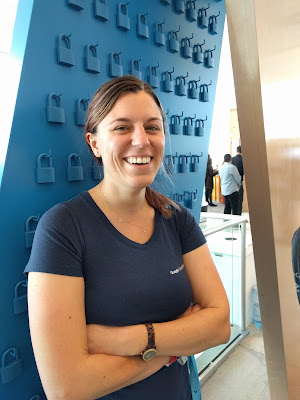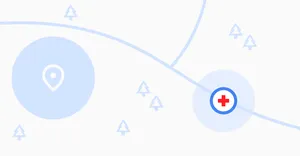Cryptography, Cloud and Equality: a Q&A with Google Security expert Maya Kaczorowski
Note from the editor: What do Julie Payette, Indira Samarasekera and Jenni Sidey have in common? They are just some of Canada’s fierce female masterminds who’ve graduated in the field of either science, technology, engineering or mathematics (STEM) and who continue to impact our society. We already have plenty of talent in Canada. However, we are not turning out enough computer science graduates to keep up with demand, especially not enough women. It's never been more critical that we give our young girls the tools they need to become the technology builders of tomorrow. One of the ways we can better equip them, is by exposing young women to how their future studies could directly apply in the real world and make them aware of the exciting career opportunities in STEM. In the hopes of doing just that, we’ve sat down for an interview with one of own trailblazers, Montrealer Maya Kaczorowski, a Product Manager at Google in Security & Privacy.

Can you tell us about your current role at Google and how you got here?
Currently, my focus is on securing workloads running in containerized environments – which is a mouthful! To clarify, containers are a relatively new way of running workloads especially in the cloud. Our team uses tools such as Docker and Kubernetes which ultimately make our customer’s applications more portable.
Prior to this, I focused on encryption at rest and encryption key management, and was the Product Manager for Google Cloud Key Management Service (Cloud KMS). Before joining Google, I worked as a management consultant at McKinsey & Company, serving financial, healthcare and insurance customers on a variety of topics, where I discovered my passion for security strategy.
What’s your educational background?
I completed a BA&Sc in Mathematics and Economics at McGill University in Montreal and then pursued a Master in Science in Applicable Mathematics, focusing on cryptography and game theory at the London School of Economics.
Can you tell us what motivated you to pursue a career in science and technology?
I always liked solving puzzles and when I took a number theory class at McGill, I realized cryptography was a great mesh of puzzles, math, and practical use cases in security. I pursued my interest in cryptography, and ended up doing a Master's degree in the field. It wasn’t a straight path from there to a technical role in the industry, however, by seizing the right opportunities when they arose, I ultimately ended up in role that was meant for me, at Google working with the encryption team. I’m especially excited about working in infrastructure security, which is a huge focus given the uptake of the cloud industry. There’s a lot of opportunity for development, and for innovation in this space.
What challenges did you face as a woman during your studies and then throughout the course of your career?
Being taken seriously has always been difficult. I can remember going to some of my first conferences in security, and people asking me if I was a reporter, or what I ‘really’ worked on, even if I had Google written on my badge. No one will give you the benefit of the doubt, you have to initially prove yourself. I’m lucky that I had the opportunities to do so, and the courage to not let people dismiss me easily.
Why is now a great time for women to pursue careers in tech?
There are two complementary forces at work - it’s a friendlier and more attractive industry for women; and companies are also realizing they need women to be more successful. In general, there are already more women in tech, and more women in leadership roles - mentoring and acting as role models for the next generation of women.
Why are women uniquely qualified to excel in some of these leadership roles?
Without over-generalizing, women bring different viewpoints to the workplace. Research has shown that more diverse teams lead to better business outcomes, and teams with more women tend to have more individuals actively participating in decision-making processes. In any product, but especially in security, having individuals from a variety of backgrounds leads to building better, more useful products.
What advice would you have for other women considering following a career in science and tech?
Simply, just go for it. Given how accessible information and tutorials are nowadays, you can teach yourself anything. I often see people falter in their belief that they need to have gone to a particular school, or have a particular degree, or particular life experience, in order to have a particular job. Compared to men, women are less likely to apply to jobs where they don’t meet all the requirements, but there’s really no harm in trying. Ask others in the industry how they got where they are, teach yourself that, ask questions where you don’t understand, and go for it.
Additionally, when I studied mathematics, about half of my class was women - which I know is unusual. We were a headstrong bunch, each taking on leadership roles in student government, research, and other campus activities; and standing up for each other if needed. I would encourage women to support each other and to take on leadership roles either within your program of study, in the community or specific ecosystem they are aiming to persevere in.
What do you think would encourage more women to pursue studies in science and technology?
I don’t think there’s an easy solution to gender equality in tech, which is why we’re all trying to improve it! I think having more exposure to how your studies are directly applicable in the real world, in the form of internships and co-ops, helps any student get a better idea of whether or not this work interests them, and what’s needed to be successful.






